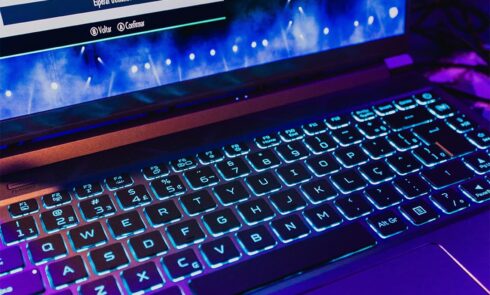The world of gaming is constantly evolving, and with the rise of new technologies, traditional genres are experiencing exciting transformations. One such intersection is the convergence of racing games and blockchain technology. As blockchain continues to make waves across various industries, its influence on gaming—particularly in racing games—is becoming increasingly evident. This article explores how blockchain technology is impacting racing games and what players can expect from this innovative combination, with a special mention of popular elements like drift boos.
1. Enhancing Ownership with NFTs
Non-Fungible Tokens (NFTs) have revolutionized digital ownership, and racing games are starting to embrace this technology to offer players a new level of engagement.
- Unique Vehicle Assets: Blockchain technology allows for the creation of unique, verifiable digital assets in racing games. Players can own, trade, and sell rare or customized vehicles as NFTs, ensuring authenticity and ownership that extends beyond the game itself.
- Customizable Parts and Upgrades: NFTs can also be used to represent customizable parts and upgrades. This enables players to buy, sell, and trade these elements in a secure and decentralized marketplace, adding a new dimension to vehicle personalization and gameplay.
2. Transparent and Decentralized Economies
Blockchain’s decentralized nature offers transparency and security, which can enhance the in-game economy of racing games.
- Fair Play and Rewards: With blockchain, racing game economies can become more transparent. Players can earn cryptocurrency or tokens based on their performance, and these transactions are recorded on a secure ledger. This transparency helps ensure fair play and equitable rewards.
- Decentralized Marketplaces: Blockchain technology enables the creation of decentralized marketplaces where players can trade assets without intermediaries. This fosters a more open and player-driven economy, allowing for a more dynamic and engaging experience.
3. Integrating Smart Contracts for Dynamic Gameplay
Smart contracts are self-executing contracts with the terms directly written into code. They can enhance racing games by automating various in-game processes.
- Automated Tournaments and Events: Smart contracts can facilitate automated tournament management, including entry fees, prize distribution, and match scheduling. This streamlines the process and ensures that rules are enforced fairly and transparently.
- Dynamic Betting and Wagering: In-game betting and wagering can be integrated using smart contracts. Players can place bets on races or outcomes, with the contract automatically handling payouts based on the results.
4. Improving Game Integrity and Security
Blockchain technology enhances the integrity and security of racing games by providing immutable records and reducing the risk of fraud.
- Anti-Cheating Measures: Blockchain’s immutable ledger helps prevent cheating and unauthorized modifications. Game data, such as race results and player statistics, can be securely recorded, reducing the likelihood of tampering.
- Secure Transactions: Financial transactions within the game, including purchases and trades, are secured through blockchain technology. This minimizes the risk of fraud and ensures that players’ investments are protected.
5. Innovative Gameplay Experiences: Drift Boss and Beyond
The integration of blockchain technology into racing games can lead to new and innovative gameplay experiences.
- Enhanced Customization: Just like the popular drift boos game allows players to enjoy the thrill of drifting with customizable features, blockchain can bring additional layers of customization and personalization. Players could use blockchain to create and trade unique drifting experiences or challenges.
- Community and Collaboration: Blockchain can foster stronger community interactions by allowing players to collaborate on projects, share assets, and participate in decentralized racing leagues. This enhances the social aspect of gaming and encourages collective creativity.
6. Future Prospects and Challenges
While the potential of blockchain in racing games is promising, there are challenges to consider.
- Adoption and Integration: Integrating blockchain into existing racing games requires overcoming technical and regulatory hurdles. Developers need to balance innovation with practicality to ensure a smooth and enjoyable player experience.
- Environmental Impact: The environmental impact of blockchain, particularly proof-of-work systems, is a concern. Developers are exploring more eco-friendly alternatives, such as proof-of-stake, to address these issues.
The intersection of racing games and blockchain technology represents an exciting frontier in the gaming world. By enhancing ownership through NFTs, creating transparent economies, leveraging smart contracts, and improving game integrity, blockchain has the potential to revolutionize how players interact with and experience racing games. As we look to the future, we can expect to see more innovative applications of blockchain technology, adding depth and excitement to games and experiences like drift boss. As these technologies evolve, they promise to bring even more dynamic and engaging possibilities to the racing genre.

